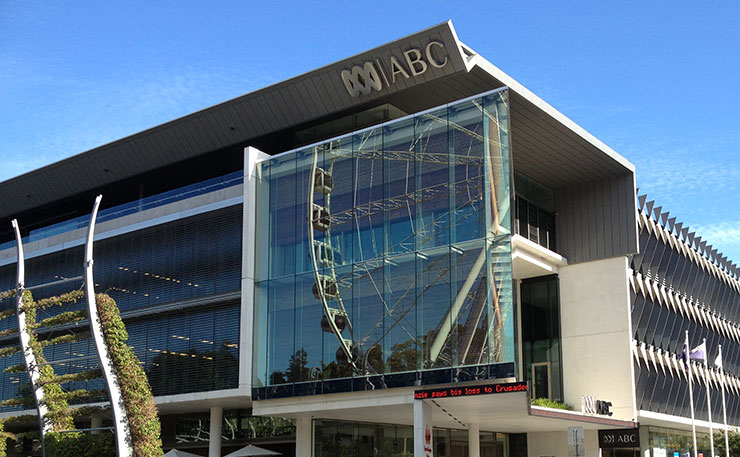Australia’s national broadcaster should be leading the debate around raising the GST, not helping increase it, writes Tim Battin.
It is one thing for News Corp and the Fairfax media to engage in framing public language in order to secure an extension and/or increase in the GST.
It is —or at least it should be — quite another for the national broadcaster to be, at best, unaware of the implications of using highly politicised terms, or, worse, pedalling such politicisation.
ABC journalist Fran Kelly is the serial offender in using the loaded term ‘GST scare campaign’, which frames opponents of a GST increase or extension as jaundiced demagogues who rely on a societal fear that has no rational basis.
Leigh Sales and Barrie Cassidy are others who choose to use the pejorative term when alternative, descriptively accurate, and objective terms are available.
Before very long, if the term is not checked, it gains wider currency so that ABC journalists with less tendentiousness fall into using the term.
The phrase is obviously objectionable because it is so politicised in both a party-political sense and more broadly. This is not to suggest that the ABC should not deal with politically contentious matters — quite the reverse. In taking up its charge to present news and current affairs according to recognised standards of objective and impartial journalism, the public broadcaster would and should be in the thick of political discourse.
All the more reason, then, for it to rid itself of using language that weights a contest before debate has even commenced.
What is at stake is a redistribution of income from lower to higher income groups. What is at stake is getting caught in a narrow and counter-productive frame about how to ‘compensate’ low-income groups for the redistributive effects of a regressive tax, while ignoring the loss of billions of dollars of revenue in the event of a revenue-reduction mission.
The goal of revenue reduction has all but been stated by the Turnbull Government in its persistent claim that spending is too high rather than the observation that revenue is too low.
In this environment the further loss of substantial public revenue in the form of capital gains concessions, negative gearing, superannuation and other wasteful tax concessions (to say nothing of the absence of a wealth tax, or of tax avoidance and evasion) skews the ‘debate’ at the outset.
It is not a ‘scare tactic’ to point out that increasing the rate of a regressive tax (or extending its base to include food) will, all other things left the same, redistribute income to higher groups.
It is not a scare tactic to claim that the same process will pass up the opportunity to engage in genuine reform of a tax system disfigured with inequity and regressivity.
But even in the unlikely event that these problems receive some policy focus, it is not a scare tactic to debate the likelihood, or longevity, of ‘compensation’ to poorer people for the regressive effects of a GST increase.
How quickly the political class forgot — or pretended to forget — that John Howard’s introduction of a GST, with the ready assistance of Meg Lees’ Democrats, was accompanied by an overall revenue reduction, on the one hand, and, on the other, a situation in which nearly half the tax cuts were directed to the top income earners.
In being so desperate for what she saw as ‘relevance’, Lees – not unlike today’s self-perceived ‘centrists’ of the ABC – was prepared to overlook economic and social modelling of real relevance. She congratulated herself on improving Howard’s GST proposal because the tax would not apply to fresh food, and the personal income tax cuts to high income groups would be merely outrageous rather than obscene.
The poorest would barely be ‘compensated’, if at all, while those on high incomes would be much more than recompensed. Additional tax cuts between 2001 and 2007 further redistributed income upwards, and eroded whatever ‘compensation’ was delivered to low and modest income households in July 2000.
To not see this is to be class blind, and it is such class blindness that now permeates the ABC.
But what may appear to be social and political naїvety is more accurately viewed as the conceit that comes from a refusal to pursue genuine independence — an independence that results from the gathering of evidence, sound reasoning, philosophical perspective, and judgement.
Giving voice to the most knowledgeable and articulate of respective positions will be part and parcel of this independence. In place of such independence, contemporary ABC journalists often give voice to the most extreme identities on the Right, and claim to ‘balance’ such views by allowing a limited response from other groups.
Such pretence of ‘balance’ may be best dispensed with altogether, so that the naked bias of the offending journalist can be seen for what it is.
In the midst of the EU’s coercion of the Greek government in mid-2015, Fran Kelly was apparently unable to find someone politically and financially knowledgeable (and disinterested) in Greece’s journalist profession or from among the entire worldwide academy, and chose instead to interview the president of the Athens chamber of commerce and industry.
Independence in a public broadcaster will not be found in a lazy and arbitrary approach of splitting the difference between truth and falsity, let alone falsity and something slightly less false. And far from performing an independent role, adopting terms of abuse (designed by one side of politics and their supporters) is the antithesis of the public interest.
Donate To New Matilda
New Matilda is a small, independent media outlet. We survive through reader contributions, and never losing a lawsuit. If you got something from this article, giving something back helps us to continue speaking truth to power. Every little bit counts.





